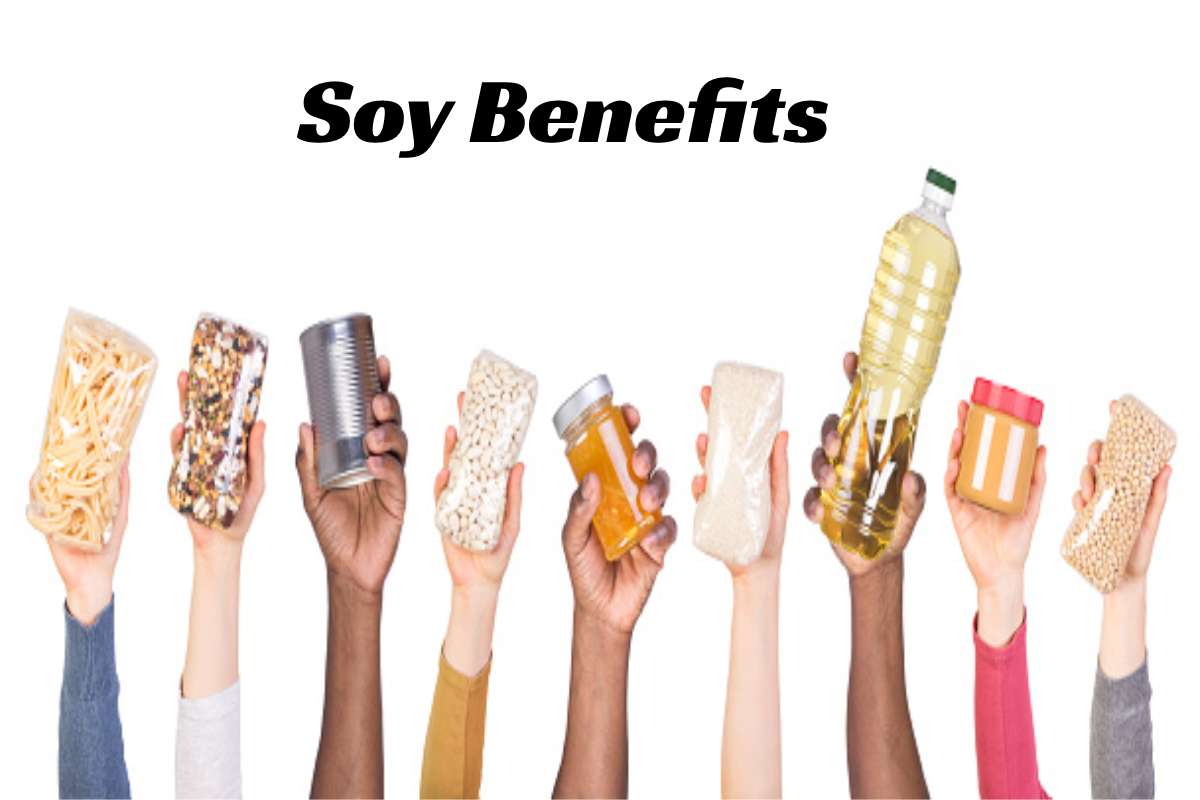Table of Contents
Soybeans Benefits
Soy Benefits: Legumes have been the critical ingredient of Asian cuisine for thousands of years. Soy and soy foods are mainly general, with people following vegetarian and vegan diets. This is due to its high-quality complete protein content and aptitude to stand processed into milk and meat substitutes. In addition, soy contains hormone-like materials called phytoestrogens that mimic the act of the hormone estrogen and have remained related to beneficial health effects. Eating soy-based foods can decrease the risk of several health problems, including cardiovascular disease, stroke, coronary heart disease (CHD), and some types of cancer, and improve bone health.
Evidence also proposes that soy and soy foods benefit perimenopausal and postmenopausal women and continue to be associated with fewer hot blazes and less severity.
More research is wanted, but the evidence suggests that counting whole soy foods (or soybeans) in your daily diet is sensible. Mention your doctor or dietitian for additional guidance.
Soy Nutritional Profile
Soy is a high-quality protein. It is one of the few obtainable plant foods (the other being amaranth seed and, to a lesser extent, quinoa) that covers all the vital amino acids, like those that originate in meat.
Soy is:
- high in fiber
- high in protein
- little in saturated fat
- cholesterol free
- Without lactose,
- a good source of omega-3 fatty acids
- a source of antioxidants
- high in phytoestrogens.
- soy products
Soy Benefits Can Remain Consumed In Many Ways.
Foods made from soybeans can continue to be divided into fermented and fresh foods. Non-fermented foods comprise tofu, soy milk, edamame, nuts, and bean sprouts, though fermented soy products include miso, tempeh, natto, and soy sauce. Approximately soy products remain sources of calcium and iron, such as tofu or tempeh (made with a calcium coagulant) and calcium-fortified soy drinks.
‘Second Generation’ Soy Products
We in Australia call an additional class of soy foods “second generation” soy foods. This comprises tofu hot dogs and patties, soy buns, soy paste, and soy milk yogurts and cheeses. It also covers soy or soy-based ingredients, such as lecithin (Additive 322), which can continue to originate in some chocolates and baked goods.
Soy and Phytoestrogens
Soy contains hormone-like substances called phytoestrogens (‘Phyto means plant), which are usual chemicals in plants. Given the right circumstances, these compounds mimic the act of the female hormone estrogen but are much less potent, about 1,000 times less.
There are many kinds of phytoestrogens, and an example is isoflavones. Isoflavones are powerful antioxidants and can mimic the belongings of estrogen, but their full physiological effects are still under investigation. Soy remains the most shared basis of isoflavones in food. The amount of isoflavones differs depending on the type of soyfood, the preparation method, and the make.
Some of the wealthiest bases of isoflavones are soy flour and soy nuts.
Health Benefits Of Soy Foods
- Research proposes that soy and soy foods have a diversity of health benefits.
- Coronary heart disease and soy
- A diet high in soy foods remains related to a lower risk of cardiovascular disease, including stroke and coronary heart disease.
- Estrogen may defend women against heart disease during their reproductive years, but heart disease rates increase after menopause.
- Soy has been shown to lower total cholesterol and LDL cholesterol levels, known risk factors for heart disease.
An examination of clinical trials suggests that 14 to 50 g of soy protein can evocatively lower entire blood cholesterol levels, LDL (bad) cholesterol stages, and triglycerides finished modestly cumulative HDL (good) cholesterol levels.
The US Food and Drug Administration also states that adults who drink at least 25 g of soy protein (around four servings) daily in a diet low in saturated fat and cholesterol can minor LDL cholesterol by 3 to 4%.
Whole soy products (such as soy milk, soybeans, and soy nuts) evocatively recuperate cholesterol stages.
Conclusion
Soybeans and soy foods may reduce the danger of numerous health problems, including cardiovascular disease, stroke, coronary heart disease (CHD), and other cancers, and advance bone health. Soy is a high-quality protein – one or two daily shares of soy products can recover our health.
Also read: https://www.smarthealthweb.com/high-fiber-recipes-instant-pot/

